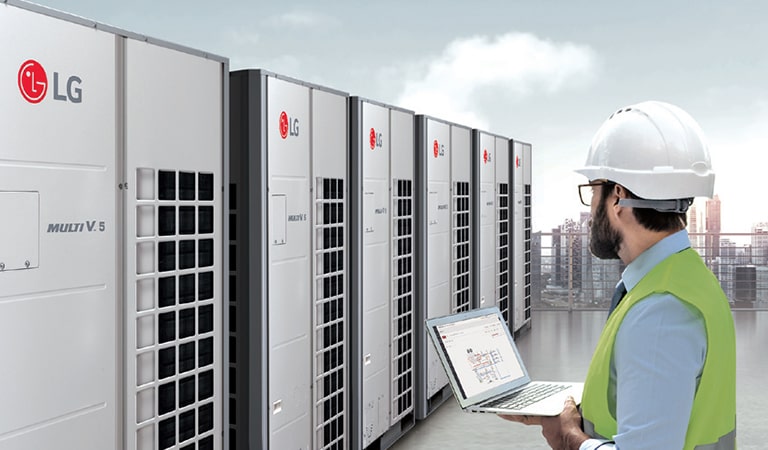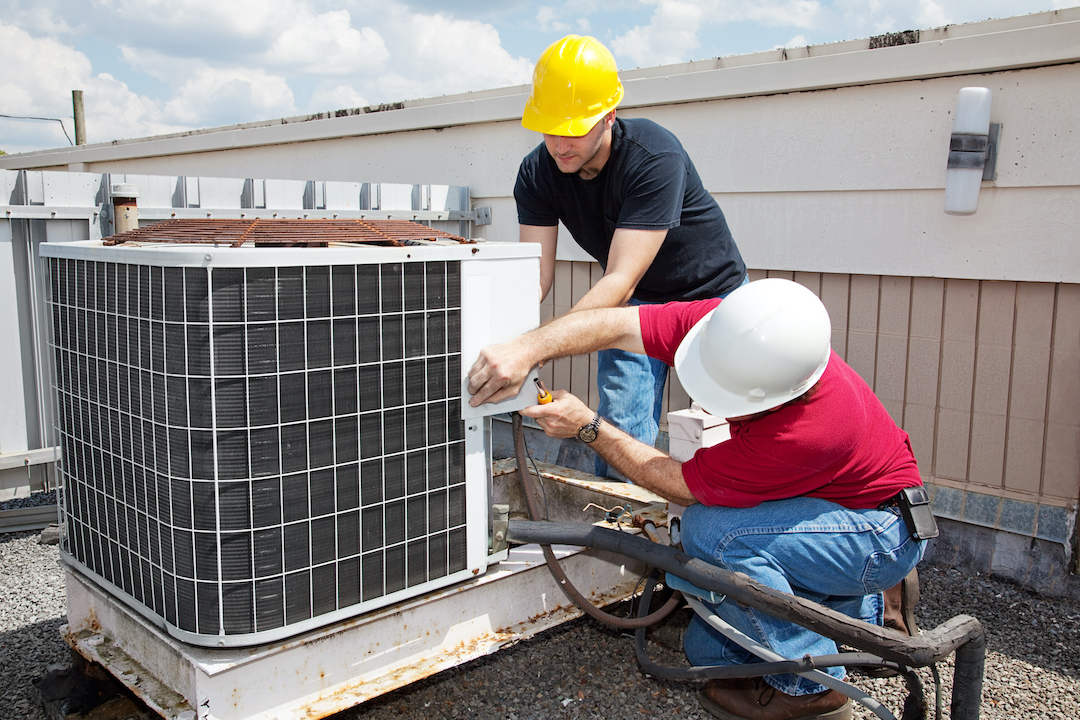The Top Benefits of Annual heat pump service
The Top Benefits of Annual heat pump service
Blog Article
Picking Between a Heat Pump and Furnace: Key Factors To Consider for Your HVAC Demands
When examining heating alternatives for HVAC requires, the decision in between a warmth pump and a heating system can be complex. Each system supplies distinct benefits customized to specific environments and power effectiveness objectives. Recognizing these distinctions is crucial for making an educated option. Secret elements such as installment prices and environmental effect additionally make complex the selection procedure. Which alternative really aligns with one's comfort and sustainability choices? The complying with areas will certainly check out these factors to consider carefully.
Understanding Heat Pumps: Exactly How They Work and Their Advantages
While numerous house owners take into consideration various heating alternatives, understanding exactly how warm pumps function and their benefits can greatly affect their decision. Warmth pumps operate by transferring warm as opposed to creating it. In the winter season, they draw out heat from the outside air or ground and move it indoors, while in the summertime, they reverse this procedure, cooling the home by getting rid of heat outside. This twin performance makes them versatile for year-round climate control.One of the primary advantages of heatpump is their energy effectiveness. They use significantly much less electrical energy contrasted to standard heating unit, potentially causing lower utility bills (heat pump service). In addition, heatpump have a smaller carbon impact, making them an eco-friendly selection. They likewise call for much less upkeep than conventional systems, adding to long-lasting cost savings. Generally, recognizing the mechanics and benefits of warm pumps can aid homeowners make educated choices concerning their home heating and cooling down needs
Checking Out Heaters: Types, Procedure, and Advantages
Furnaces come in different kinds, including gas, electrical, and oil models, each with distinctive operational devices. Understanding these differences is crucial, as they influence performance and heating efficiency. Additionally, heating systems use countless advantages, such as constant heat output and reliability in chillier climates.
Kinds of Heating systems
Heater can vary significantly in style and operation, with heaters being a popular choice amongst homeowners. There are numerous sorts of heating systems, each making use of various gas sources and innovations. Gas heating systems prevail, leveraging gas to produce warm successfully. Electric furnaces, on the other hand, utilize electrical resistance to generate warmth, often favored for their uncomplicated setup. Oil heaters, while much less usual, are efficient in locations with minimal gas gain access to (heat pump service). In addition, condensing heating systems take full advantage of power effectiveness by catching and recycling exhaust gases. Each kind operates with a system of warmth exchangers and ductwork to disperse cozy air throughout a home. Recognizing the differences in between these heating system kinds is essential for educated a/c decisions
Benefits of Furnaces
For home owners looking for reputable heat during cool months, the benefits of heating systems are considerable. Heating systems give regular home heating, making certain even temperatures throughout the home. They are especially effective in extreme cold, typically exceeding warm pumps in cold conditions. Different kinds, consisting of gas, electrical, and oil heating systems, supply flexibility to meet diverse demands and preferences.Furnaces also have a tendency to have lower first installation costs compared to heat pumps, making them a more obtainable alternative for several. Their durable design contributes to a longer life expectancy, with numerous units lasting over 15 years with correct maintenance. Additionally, modern heating systems are usually equipped with innovative innovation for improved performance, which can bring about decreased power expenses. In general, furnaces continue to be a reputable option for effective home heating.

Energy Effectiveness: Comparing Heat Pumps and Furnaces
When comparing power efficiency in between heatpump and furnaces, the Seasonal Energy Effectiveness Ratio (SEER) plays an essential function in determining efficiency. Furthermore, an operational price evaluation exposes the lasting monetary effects of each system. Recognizing these factors can lead homeowners in making informed choices about their home heating options.
Seasonal Energy Efficiency Proportion
Energy performance plays a necessary role in the decision-making procedure in between warmth pumps and heaters, particularly when considering the Seasonal Energy Effectiveness Ratio (SEER) This metric procedures the cooling performance of heat pumps over an entire cooling season, supplying a standardized method to review efficiency. Greater SEER scores suggest better power performance, converting to reduced power usage and decreased utility expenses. In comparison, heating systems are commonly assessed using the Yearly Fuel Usage Efficiency (AFUE) rating, which reflects home heating effectiveness. When contrasting these 2 systems, home owners need to focus on SEER scores for heatpump, as they directly influence general power savings and environmental sustainability. An extensive understanding of SEER can especially affect the long-term satisfaction and cost-effectiveness of the selected a/c service.
Operational Expense Analysis
Recognizing the functional costs connected with warmth pumps and heaters is vital for home owners assessing their options. Heat pumps commonly use greater power efficiency, transforming electric energy right into warmth with minimal waste. This leads to reduced regular monthly energy bills, particularly in moderate climates. On the other hand, typical heating systems, particularly gas designs, might have reduced in advance expenses however can sustain greater operational expenditures with time due to fuel costs and efficiency ratings.Moreover, warm pumps can function as both heating and cooling down systems, possibly reducing the requirement for separate heating and cooling units. While preliminary investments for heatpump may be greater, their long-term financial savings in power efficiency can make them a more cost-efficient option for several households. Cautious evaluation of neighborhood power rates is vital to establish the most effective choice.
Installation Expenses: What to Expect for every Heater
Installment expenses for heater can differ significantly in between heat pumps and heating systems, affecting home owners' decisions. Heat pumps typically have greater ahead of time setup costs, usually varying from $3,500 to $8,000, relying on the unit size and complexity of installation. This includes the outdoor unit, indoor handling system, and essential ductwork adjustments. Conversely, heaters have a tendency to have reduced preliminary costs, averaging between $2,500 and $6,000, which can be appealing for budget-conscious homeowners. Setup expenditures can enhance if substantial ductwork is required.Moreover, the selection of gas kind for furnaces-- natural gas, lp, or electrical-- can also impact installment expenses. While heat pumps supply power performance, their first investment might deter some purchasers. Inevitably, assessing setup costs along with long-term cost savings and efficiency will certainly aid property owners in making educated choices about their furnace.
Environment Factors To Consider: Which System Carries Out Much Better in Your Location
How do environment problems affect the performance of heater? The performance of heat pumps and furnaces can vary greatly depending on the neighborhood environment. In modest environments, heatpump succeed by successfully transferring warm from the outside air, making them an energy-saving alternative. Nonetheless, their performance diminishes in extremely cold temperature levels, where they may have a hard time to draw out enough warmth. On the other hand, heaters, especially gas versions, provide consistent and trusted heat no matter outside problems, making them more suitable in chillier regions.In areas that experience milder winters, warmth pumps can run efficiently year-round, supplying both home heating and air conditioning. On the other hand, regions with extreme winters typically take advantage of the effectiveness of furnaces. Eventually, comprehending the local climate is necessary when deciding in between a heatpump and a furnace, as it directly affects their functional performance and general performance.
Maintenance Demands: Long-Term Take Care Of Warm Pumps vs. Furnaces
While both heatpump and heaters require normal upkeep to assure peak performance, their details requirements and treatment routines vary significantly. Furnaces usually require much less regular focus, with yearly evaluations being adequate to look for gas leakages, tidy filters, and examine overall capability. Their simpler design typically enables for straightforward repairs.In contrast, heatpump require biannual upkeep due to their double duty in heating and air conditioning. This consists of cleaning coils, inspecting cooling agent levels, and ensuring that both the exterior and interior devices function at their ideal. In addition, warmth pump maintenance typically involves even more complex parts, making specialist maintenance essential.Neglecting upkeep can lead to diminished performance and boosted power costs for both systems. Ultimately, homeowners should think about these lasting care demands when choosing between a warmth pump and a heating system, as aggressive maintenance can prolong the lifespan and performance of either system significantly.
Environmental Influence: Picking a Sustainable Home Heating Choice
The environmental impact of heating unit is an essential evaluation for property owners seeking sustainable choices. Heatpump are generally extra energy-efficient than conventional furnaces, as they transfer warm instead of create it, substantially decreasing carbon exhausts. By using sustainable power resources, such as geothermal or air-source heatpump, homeowners can additionally lessen their environmental footprint.On the various other hand, all-natural gas heaters emit greenhouse gases and contribute to air contamination, though they typically offer greater heat result. Nonetheless, innovations in modern technology have actually led to the growth of this contact form high-efficiency furnaces that minimize emissions.Ultimately, picking a heater entails evaluating performance versus environmental impact. Homeowners are motivated to show on neighborhood energy sources and incentives for eco-friendly systems, making sure a choice that straightens with both individual convenience and environmental duty. The choice influences not just instant comfort however additionally long-term sustainability and environmental health and wellness.
Often Asked Inquiries
The Length Of Time Do Warmth Pumps and Furnaces Usually Last?
The lifespan of warmth pumps typically varies from 15 to two decades, while heaters can last in between 15 to three decades. Regular maintenance considerably affects their durability and effectiveness in supplying home heating remedies.
Can I Use a Heat Pump in Extremely Cold Climates?
Warm pumps can run in published here extremely chilly environments, however their effectiveness lessens as temperatures decrease. In such conditions, supplemental heating resources might be required to maintain comfortable interior temperature levels and assure peak performance.

What Is the Sound Level of Warm Pumps Versus Furnaces?
The noise levels of heatpump and heating systems differ considerably. Typically, heatpump run even more silently than typical heating systems, making them more effective for those conscious seem, while heating systems may create louder functional noises throughout home heating cycles.
Are Warm Pumps Suitable for Both Home Heating and Air conditioning?
Warm pumps are indeed appropriate for both cooling and heating (heat pump installation ooltewah tn). They work by transferring heat, giving efficient temperature level control year-round, making them a functional option for property owners looking for an all-in-one HVAC service
What Dimension Furnace Do I Required for My Home?
Figuring out the ideal size furnace for a home requires assessing aspects such as square footage, insulation top quality, neighborhood climate, and the home's layout. Consulting a professional can guarantee an exact analysis and optimal comfort. Warm pumps usually provide higher energy efficiency, converting electric power right into warmth with marginal waste. In moderate climates, warm pumps stand out by effectively transferring warmth from the outside air, making them an energy-saving alternative. On the other hand, furnaces, particularly gas designs, offer reliable and constant heat regardless of outside problems, making them preferable in cooler regions.In areas that experience milder winter seasons, heat pumps can operate successfully year-round, offering both heating and cooling. Heat pumps are normally extra energy-efficient than conventional heating systems, as they transfer heat rather than generate Your Domain Name it, greatly reducing carbon exhausts. By using eco-friendly energy resources, such as geothermal or air-source warm pumps, house owners can further reduce their environmental footprint.On the various other hand, all-natural gas heaters release greenhouse gases and add to air pollution, though they typically provide greater warmth outcome.
Report this page